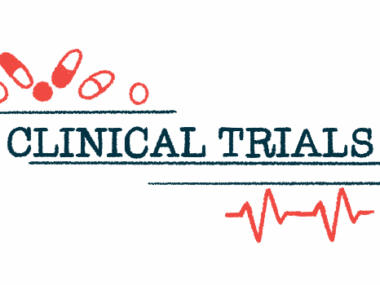Navenibart safely reduces HAE swelling attacks by up to 95%
16 people with HAE types 1, 2 were included in ALPHA-STAR study
Written by |

Treatment with navenibart, or STAR-0215, safely reduced the rate of monthly swelling attacks by 90% to 95% in people with hereditary angioedema (HAE) when the therapy was given once or twice over six months, data from the completed Phase 1/2 ALPHA-STAR clinical trial shows.
Announced by developer Astria Therapeutics, the data also shows that navenibart was safe and well tolerated. Pharmacokinetic and pharmacodynamic analyses were consistent with previously reported interim analyses, supporting dosing every three to six months. Pharmacokinetics refers to a medicine’s movement into, through, and out of the body, while pharmacodynamics assesses its effects on the body.
“The results from the ALPHA-STAR Phase 1b/2 trial affirm our belief in navenibart’s profile and its potential to be a life-changing, market-leading preventative treatment for HAE patients,” Christopher Morabito, MD, chief medical officer at Astria Therapeutics, said in a company press release. “After one or two doses over six months, patients experienced rapid onset of robust and durable efficacy, favorable safety and tolerability, and [pharmacokinetics] and [pharmacodynamics] that are consistent with sustained plasma kallikrein inhibition and [every three months] and [every six months] administration. These results are highly consistent with the interim results we reported in March.”
Astria plans to launch a Phase 3 clinical trial of navenibart in early 2025. The top-line results are anticipated by the end of 2026.
“We look forward to presenting these data at an upcoming scientific conference and expect to initiate Phase 3 development in [the first quarter], pending completion of discussions with global regulators,” Morabito said.
In HAE, swelling episodes are driven by the overproduction of the signaling molecule bradykinin. Navenibart is an antibody-based therapy that inhibits kallikrein, the enzyme that mediates bradykinin’s production. By reducing bradykinin, the therapy should minimize the frequency and severity of swelling attacks.
Results of ALPHA-STAR study
The ALPHA-STAR trial (NCT05695248) evaluated navenibart in adults diagnosed with HAE types 1 or 2. Sixteen patients were divided into three groups and after an eight-week run-in period to determine baseline HAE attack rates, all the participants received navenibart, with each cohort following a unique dosing regimen.
In the first group, four participants received a single 450 mg injection. These patients were monitored for a minimum of six months after treatment. The results showed a reduction of 91% in the monthly attack rate. The rate of moderate and severe attacks dropped by 96%, and the need for rescue treatments dropped by 94%. Two of the participants remained completely attack-free during the first three months after treatment, and one of them did for the entire six months.
In the second group, six participants received an initial 600 mg injection, followed by a second 300 mg injection three months later. Over six months, the monthly attack rate dropped by 95%, with four patients (67%) remaining completely attack-free throughout this period. There was a 95% reduction in the rate of moderate and severe attacks, along with a 94% reduction in using rescue treatments.
Six patients in the third group received two 600 mg injections of navenibart, one month apart. On average, the monthly attack rate dropped by 92%, with four having no attacks during this time. There was a 96% reduction in the rate of moderate and severe attacks, and a 91% reduction in the use of rescue medication.
Four non-severe treatment-emergent adverse events (TEAEs) were reported — one case of dizziness, a temporary injection site rash, and injection site redness and itching. There were no reports of pain at the injection site, and all the TEAEs resolved quickly.
“These results from the ALPHA-STAR trial are exciting for the future of the HAE treatment landscape,” said Aleena Banerji, MD, clinical director at the Massachusetts General Hospital Allergy and Clinical Immunology Unit. “We understand from people living with HAE that the disease and treatment burden can weigh heavily on their physical and mental health. I am optimistic that a therapy with infrequent dosing, a well-tolerated profile, and a trusted mechanism and modality could alleviate the burden for patients.”
All the patients who completed ALPHA-STAR enrolled in the ALPHA-SOLAR extension study (NCT06007677), Astria reported. In the follow-up, patients will receive navenibart at either 300 mg every three months or 600 mg every six months. The company plans to announce initial data from ALPHA-SOLAR by mid 2025.






